





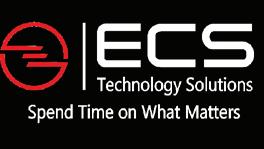
















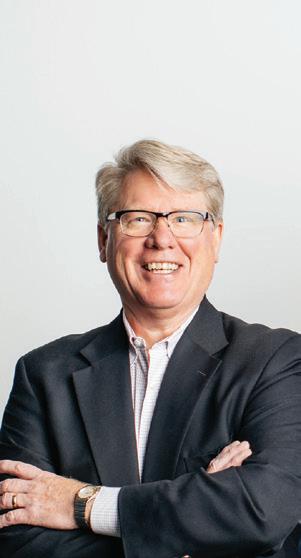
EXECUTIVE
publisher
Todd Lemke
associate publisher
Bill Sitzmann
EDITORIAL
editor-in-chief
Kim Carpenter
associate editor
Natalie Veloso
assignment editor
Claudia Moomey
contributors
Tamsen Butler
Kyle Eustice
Dwain Hebda
Brandi Long-Frank
Lisa Lukecart
Holly McAtee
Heath Mello
Steve Jordon
Kara Schweiss
Deborah Ward
INFORMATION advertising information 402.884.2000
subscribe online omahamagazine.com/ pages/subscribe

creative director
Rachel Birdsall
sr. graphic designer
Renee Ludwick
graphic designer II
Nickie Robinson
graphic designer I
Joey Winton
photographers
Bill Sitzmann
Katie Anderson
photo editor
Sarah Lemke
SALES
executive vice president
sales & marketing
Gil Cohen
branding specialists
Dawn Dennis
George Idelman
Francine Flegg
contributing branding specialists
Greg Bruns
Tim McCormack
assistant to the publisher
Sandy Matson
senior sales coordinator
Alicia Hollins
sales coordinator
Sandi McCormack
OPERATIONS
business manager
Kyle Fisher
ad traffic manager
David Trouba
distribution manager
Damian Ingersoll
O maha’s richly diverse community is made even more so by its local businesses. Community members providing unique services and quality products is one of the aspects of the city that makes it such a great place to live and work.
A perfect example of this include the Nebraska Business Development Center, which has been part of the Omaha community and University of Nebraska Omaha since 1977. This unique company offers free, confidential consulting to any business owner or entrepreneur wanting to start, develop, or transition their company. A business whose business is helping other businesses that is truly a sight to see in the capitalist society in which we live, and only serves to enrich the local culture.
Along with great partnerships comes great leaders and visionaries. Sidney E. Meridith of Security Equipment Inc. was recently inducted into the Omaha Business Hall of Fame for his exemplified commitment to the community and being a business leader for over half a century. Coming from small-town Boone, Nebraska, Meridith grew up watching his family run small businesses and learned the value of good customer service, a pillar of the SEi company that has been invaluable to Meridith since the beginning of the company in 1969.
Companies such as these represent the history of Omaha, standing the test of time, while The University of Nebraska Medical Center (UNMC) represents the future. UNMC’s Center for Heart and Vascular Research was recently awarded more than $11.8 million by the National Institutes of Health to create a Center of Biomedical Research Excellence focused on finding answers for heart and vascular diseases. With this tremendously helpful aid for research, scientists are able to get closer to finding solutions to heart problems and issues like limited availability of healthy hearts for transplants.
All these stories and more enrich the pages of this B2B issue. I hope they inspire you as much as they did me, as well as garner respect for entrepreneurs and the Omaha
Claudia Moomey is an editor at Omaha Publications. She can be reached for story suggestions and pitches at claudia@omahapublications.com







Dr. Dele Davies disscusses how UNMC is furthering medical research with multi-million dollar grant. Cover photography Bill Sitzmann | Cover design Renee Ludwick
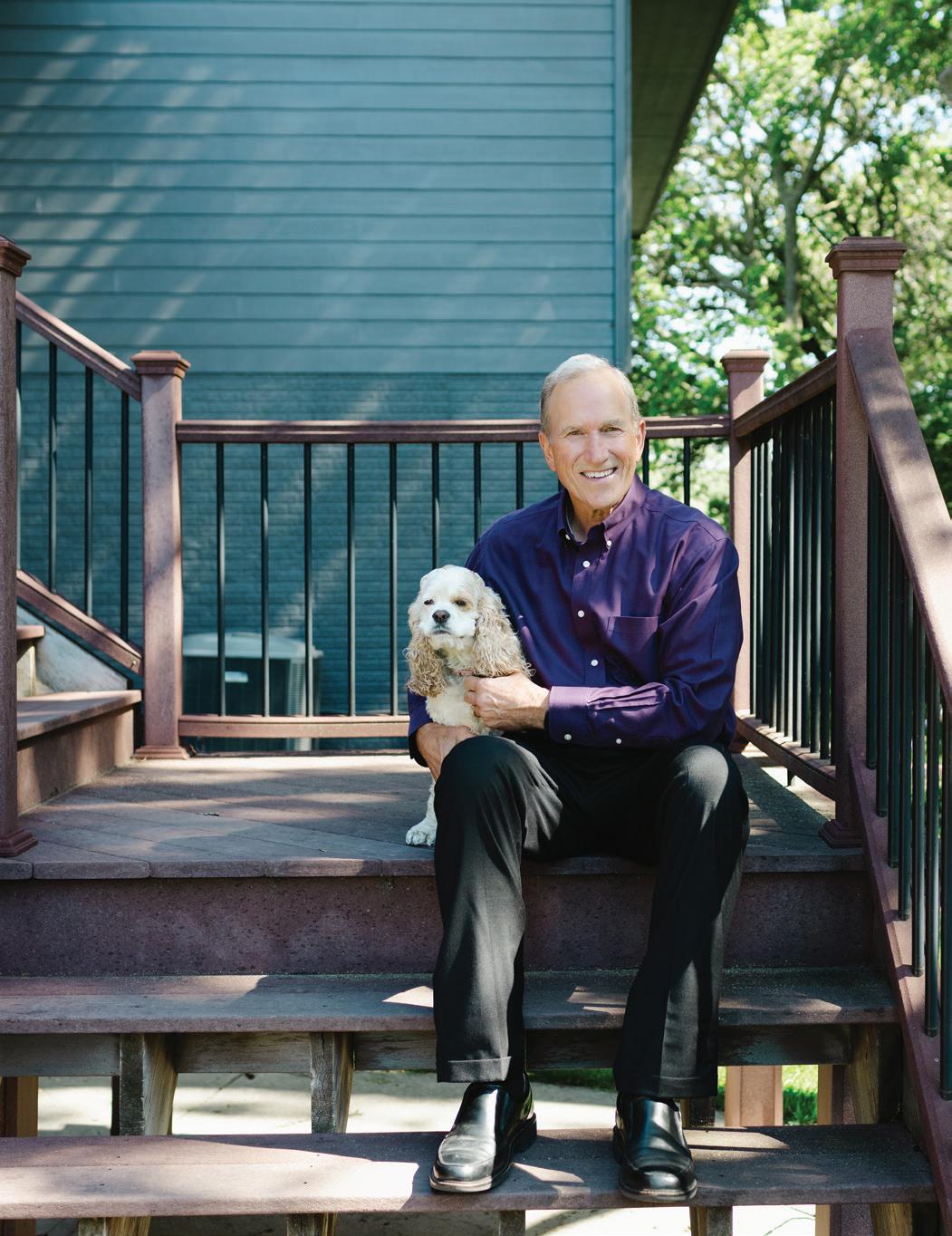
“THEY DON’T SAY THAT BUSINESS IS HARD. YOU WORK AND YOU TRY TO FIND A WAY AND YOU DON’T FIND IT, AND YOU TRY AGAIN AND YOU DON’T FIND IT AGAIN. YOU JUST KEEP DOING IT.”
-DON ECKLES

Don Eckles was 24 when he and 59 other mushers headed from Anchorage toward Nome, the 975-mile trek across Alaska known as the Iditarod Trail Sled Dog Race.
A year earlier, soon after arriving in Anchorage to work as a radio announcer, Eckles had seen the start of the 1979 race and thought to himself, “Man, that looks like the adventure of a lifetime. I need to do that.”
He was the overnight DJ at KFQD-FM Radio in Anchorage, making $1,400 a month $300 more than he had made at Omaha’s WOW Radio. He was enjoying the Alaskan outdoors in Anchorage, which is wedged between mountains and Cook Inlet.
Married with two young daughters, Eckles rented a team of 14 dogs, bought a sled, and spent his spare time over the next year training himself and the team and finishing qualifying races.
He didn’t want to just run the race. He wanted to win. Looking back, he said: “What was I thinking?”
The Iditarod, he says today, taught him lessons that proved to be valuable during years of struggle that eventually led him and his wife, Linda, to being inducted into the Omaha Business Hall of Fame.
The couple are co-founders of Omaha-based Scooter’s Coffee, one of the nation’s fastest-growing franchise businesses.
Coffee was far from Eckles’ mind on March 1, 1980, when he and his dog team headed across the snow, following a trail along the Iditarod River that miners had used when gold was discovered in 1908.
The name comes from the Deg Xinag and Holikachuk languages of the Athabascan people of interior Alaska and means “distant” or “distant place.”
The Iditarod finish line was indeed distant. Eckles was one of 35 Iditarod rookies that year, alongside 25 others who had competed before.
“At 24, I thought I could do anything,” Eckles said. “Because I actually thought I could win this thing, I did things differently from the dozens of seasoned mushers who had done this many times. I don’t have to tell you how naïve and foolish that was.”
Seasoned mushers would run four hours and then rest the dogs and themselves for four hours before heading out again. Eckles’ strategy: Run until he was tired, maybe 10 hours, stop and rest, and repeat. He had started near the back of the race but soon was passing other teams.
FROM PAGE 05
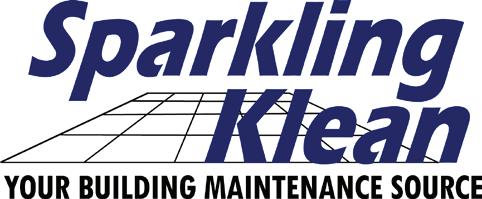



The first night out, he put his sleeping bag directly on the ice and his body heat caused some melting and a cold, wet night’s sleep. After a few days, he discarded his camp stove and propane to save weight, figuring he would collect wood and build camp fires. But wood was scarce along much of the trail, and soon he and his dogs were eating frozen meat.
“There were times on the trail when I was lonely or afraid,” he said. “When you’re mushing along in the darkness alone, it’s just you and the dogs, and the sound of a sled gliding across the snow. Very quiet. Very dark.
“You realize how magnificent it all is and how much danger is all around you. There could be open water that you don’t see until it’s too late. There are moose, which hate dogs. There are wolves, which kill and eat dogs and people. There are hazards, which can cause serious injury or death. You begin to realize just how small and insignificant you are in the scheme of all that.”






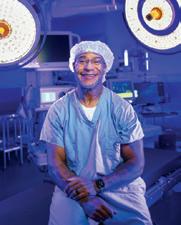


His mandatory indoor 24-hour stop was refreshing, but the difficulties of the trail soon returned.
“I realized how lonely I was,” he said. “I remember being surprised by the emotion I felt. I realized that I wasn’t nearly as strong as I thought I was.
“It wasn’t that I wasn’t strong, but maybe more that I learned that I really did need people in my life. I wasn’t as able to just handle the world as I thought I was. I missed Linda and the family. I didn’t know what any of that meant then, but I know now how much we need each other. How interconnected we are. And that’s a good thing.”
By the time he traveled nearly 600 miles, he realized that he wouldn’t make it to the finish line. It was 40 below zero as he slid along the frozen, winding Yukon River, hoping to make it to the next checkpoint at Galena and then call an end to his race attempt.
“I didn’t stop to feed the dogs, I didn’t stop to eat, I didn’t stop for anything,” he said. “Every time I’d go ’round the bend I’d think I’m going to see Galena.”
Finally, he saw a woman on the riverbank and asked, “How far to Galena?” She replied, “Twentysix miles.”
His heart sank, and by the time he reached Galena, he and the team were exhausted. His hard-driving strategy had failed.
“I had no chance for anything other than the adventure of a lifetime,” he said. “If I had wisdom then, I would have known that. Still a great adventure, but not one I was able to complete. Physically, I was in great shape, but internal strength and wisdom are important, too.”
Of the 60 mushers who left Anchorage, 36, including 20 rookies, made it to Nome. The other 24, including Eckles, did not. The winner was Joe May of Trapper Creek, Alaska, with a time of 14 days, 7 hours, 11 minutes, and 51 seconds. He won $12,000. It was May’s third race, having finished 11th in 1976 and fifth in 1979.
Although Eckles didn’t finish the race, he learned valuable lessons: Starting something without serious thought and reflection is a bad idea. He wasn’t nearly as tough as he thought he was. He needs other people to succeed.
After a series of jobs and ventures, some successful and some not, in 1998, Don and Linda Eckles opened their first Scooter’s Coffee location in Bellevue. Today, Scooter’s has about 800 locations.
At the 2022 ceremony inducting the couple into the Omaha Business Hall of Fame, Eckles didn’t mention the Iditarod, but talked about going broke in his early businesses.
“People just don’t say that out loud very often,” he told the Omaha business leaders at the dinner event. “They don’t say that business is hard. You work and you try to find a way and you don’t find it, and you try again and you don’t find it again. You just keep doing it.”
Visit omahamagazine.com for more information.

Team first. That drives your business. It drives us, too. No matter your line of work, we’ll provide flexible, high-quality health plans for your business. And when we do that, everybody on your team wins.







Inform, engage, and entertain that’s what magazines do, and that’s what a newer medium known as a podcast does as well.
Patrick Combs, president and CEO of Walnut Media, said podcasting is an excellent tool for business leaders because they can tell their full story.
“I tell people that podcasting allows them to tell a deeper story in a format that is convenient for the consumer,” Combs said. “In traditional marketing, it’s usually short format television, radio, digital are all short form. At a seminar or speech, it’s hard to push stop and rewind. With podcasting, experts are allowed to go a bit deeper with content, and the consumer is allowed hit pause, and listen again.”
Successful podcasts are a part of marketing strategy, and the hosts and creators of those podcasts are dialing into their core audience, whether that’s chiropractic customers or magazine readers.
“They need to understand consumers of their podcast and talk to their audience,” Combs said. “They need to understand the distribution models and streams. You need to have a strategy to promote your podcast. Strategy is going to be a little different for everyone.”
Combs also said that podcasters should think about the size of the city before starting a show.
“We find podcasts are mostly consumed in the car. And so 20-minute podcasts are good, because you can go anywhere in this city in about 20 minutes.”
Omaha Publications recently began The Omaha Magazine Podcast. The show is based on the company’s core values of creativity, integrity, respect, and passion and community.
Publisher Todd Lemke said creating the show was important to him as it is a great way for Omaha’s community publication to continue connecting with others.
“We started it as an additional community connection with the people who make Omaha special,” Lemke said. “I like that it allows people to not only hear, but see, influential interviews.”
Lemke chose Gil Cohen, Omaha Publications Executive Vice President of Sales & Marketing to host the podcast.
“What I’ve worked on doing scheduling guests has been trying to find people who represent all facets of Omaha, from South Omaha to North Omaha, from politics to arts to education,” Cohen said. There was no roadmap for this, so I’ve tried to get people who have community ties, who have insight as to the city Heath Mello, Mayor Jean Stothert. (With the business people) we’re asking what’s the business climate. That way, if someone might see these podcasts from outside Omaha, they might think ‘hey, I want to know more about that city.’”
Cohen has talked with several guests about the business-minded topics related to Omaha. “With the Mayor, we talked about the city recently being named Forbes’ No. One city to move to. Itzel Lopez, we talked about what does the economic, postpandemic development look like in South Omaha?
I’ll have LaVonya Goodwin on to talk about North Omaha. People want to know what’s going on.”
One of the first guests on the podcast was real estate mogul and entrepreneur Van Deeb, who discussed entrepreneurial success. It was a guest appearance he was happy to provide.
“I’m a big fan of Omaha Magazine, so I said I’d be thrilled to join the podcast,” said Deeb, who who has hosted his own podcast for the past five years. Deeb’s show discusses everything from work culture to sales strategies to “The Power of a Handwritten Note.” He thought the Omaha Magazine Podcast, specifically, was a great way for business and community leaders to connect with Omaha Magazine’s audience.
“Gil…did a fantastic job, I was very impressed,” Deeb said. “With the reach that Omaha Magazine has, they’ll have an instant audience, and I think it’s be a great added value for subscribers to listen to the podcast.”
Combs, who was also one of the first guests on the show, said podcasting is a great new way for people to consume media.
“A lot of people think it’s a competitor of radio, but it’s just another form of consumption,” Combs said. “Instead of listening to the radio in their car, people are listening to a podcast. It’s a pretty powerful form of consumption.”
Visit omahamagazine.com/the-omaha-magazinepodcast for all episodes of this show.
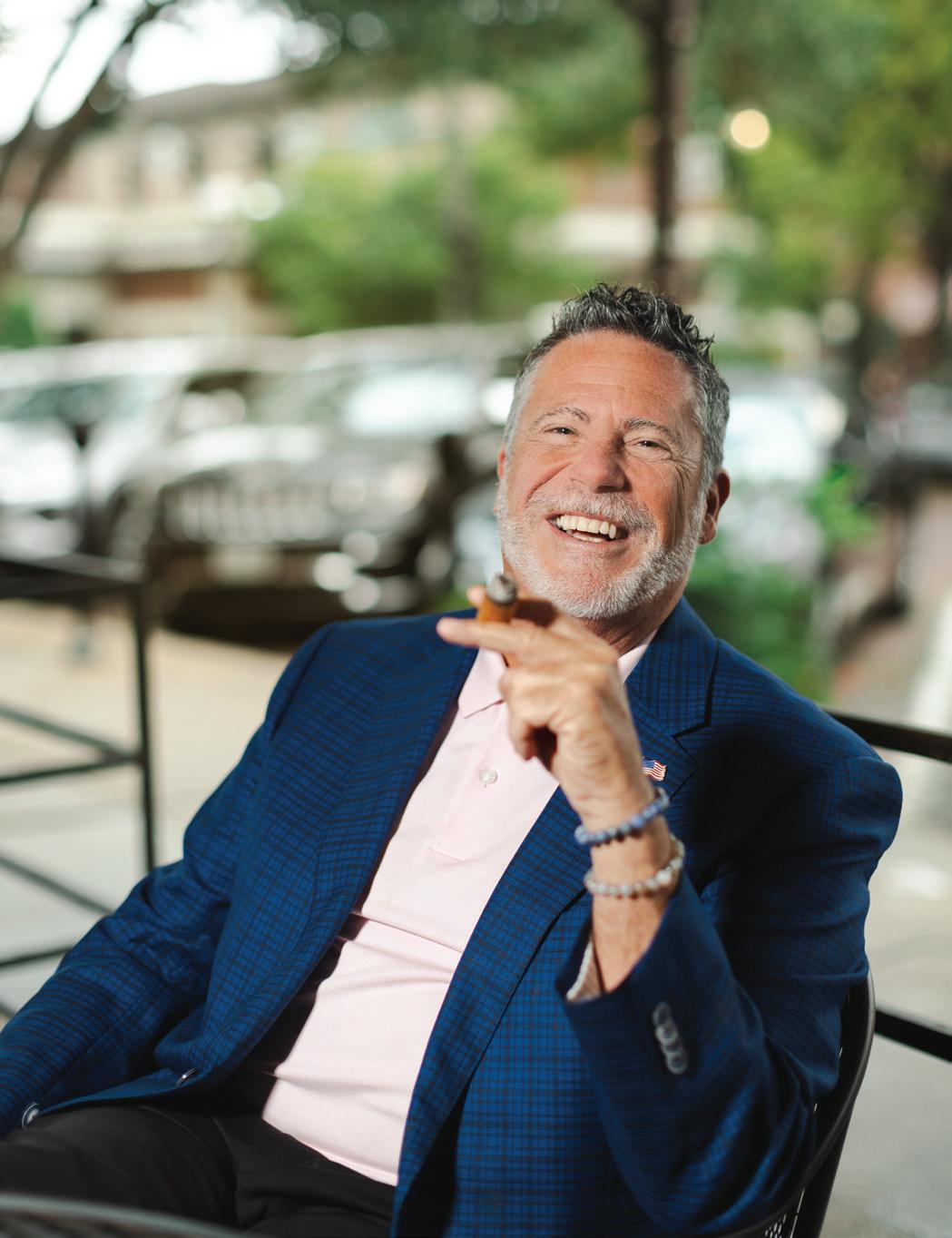
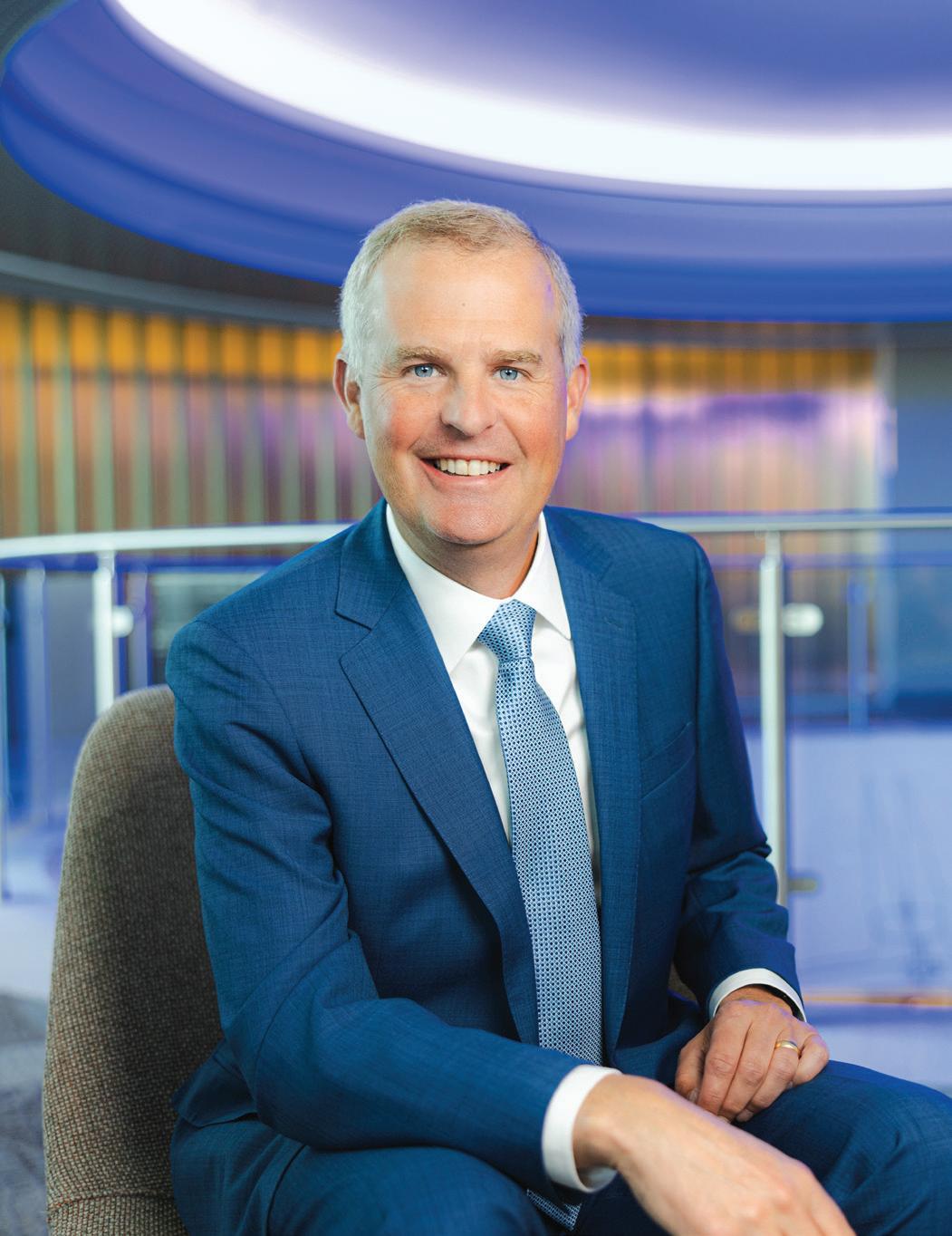
Designed to enhance community health and well-being, Blue Cross Blue Shield of Nebraska (BCBSNE) announced its Healthy Home Team initiative in June 2024. The far-reaching program aims to support high schools throughout the state, with the company set to award $500 grants to 100 schools annually. With a clear vision, the initiative seeks to empower schools by providing financial resources while promoting community spirit. Schools were invited to fill out a short form detailing their current community health support efforts and how they planned to use the grant funds to further these plans. Conducting the process this way ensured that a diverse range of schools throughout the state could benefit from the initiative.
“BCBSNE’s mission to create this program was inspired by their mission to champion the health and wellbeing of their members and the broader communities they serve,” Jeff Russell, BCBSNE’s president and CEO, said, emphasizing the importance of schools as community hubs.
“By providing these grants, BCBSNE aimed to empower schools to implement programs tailored to their unique needs, whether that meant starting a community vegetable garden or purchasing new athletic equipment.”
Schools selected for a grant will also receive a customized team spirit sign to display in their athletic facilities, symbolizing their commitment to health and community engagement.
In addition to the 100 $500 grants, BCBSNE announced that it planned to award an additional $5,000 grant to one school each year. This grant was to be given to the school that demonstrated the most compelling proposal based on feasibility, creativity, and potential impact. The winner of this extra grant would be selected from the group of $500 grant recipients, with an announcement slated for November. “We already know it’s going to be a tough decision,” said Russell.
“BY PROVIDING THESE GRANTS, BCBSNE AIMED TO EMPOWER SCHOOLS TO IMPLEMENT PROGRAMS TAILORED TO THEIR UNIQUE NEEDS, WHETHER THAT MEANT STARTING A COMMUNITY VEGETABLE GARDEN OR PURCHASING NEW ATHLETIC EQUIPMENT.”
-JEFF RUSSELL
Stephanie Francl, senior director of government and association accounts at BCBSNE, highlighted that the selection process was designed to be both inclusive and competitive. Schools were evaluated based on their proposals’ impact on community health, ensuring that both rural and urban schools, as well as those of varying sizes and classifications, were considered. Francl mentioned, “Our president and CEO feels very passionate about supporting health and well-being, and a big piece of that is the
schools. They are our members today, but we also can show up and help support them in different ways than just their health insurance coverage. We did a significant amount of work before launching Healthy Home Team. The team discussed how we best show up by offering the grant and then allowing us the opportunity to have a banner or something similar in the local school gymnasium or ball field.”
Looking to the future, BCBSNE envisions the Healthy Home Team initiative evolving over time. The company plans to reach all high schools across the state over a multi-year cycle, distributing new team spirit signs and grants to support various community health initiatives. This approach is aimed to ensure sustained impact and engagement throughout every school in Nebraska.
Despite the initiative’s positive reception, challenges were anticipated, particularly in streamlining the application process for schools facing staffing and resource constraints. BCBSNE committed to addressing these challenges by simplifying the application requirements to reduce the burden on schools. Francl explained, “We know schools today are very challenged with staffing and keeping teachers, so we’re trying to make it as simple as possible, so they don’t have one more thing to do.”
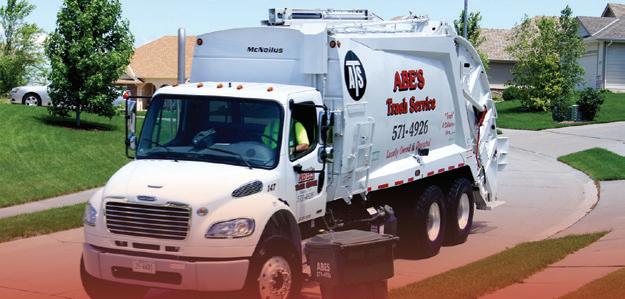
“WE
KNOW SCHOOLS TODAY ARE VERY CHALLENGED WITH STAFFING AND KEEPING TEACHERS, SO WE’RE TRYING TO MAKE IT AS SIMPLE AS POSSIBLE, SO THEY DON’T HAVE ONE MORE THING TO DO.”
-STEPHANIE FRANCL
Community involvement was considered a crucial factor in the success of the initiative. BCBSNE encouraged community members to share photos, videos, and social media content that showcase the impact of their team spirit signs at games and events. Russell mentioned, “We know that Nebraskans have so much pride in their home teams. We have that same pride here at Blue Cross and Blue Shield of Nebraska. Distributing the team spirit signs, in addition to the grants, enables us to celebrate our state’s home teams, which often bring communities together.” The company believes that increased visibility and engagement can lead to more applications and greater overall impact on Nebraska’s communities.


“BCBSNE has also long been a supporter of Nebraska’s students and educators. We have proudly provided health care coverage to Nebraska educators for half a century. In addition to the Healthy Home Team initiative, outreach efforts have included hosting an annual school supply drive, sponsoring the annual Outstanding Nebraska Teacher Award, providing safety equipment for students to use, and more,” said Russell.
The Healthy Home Team initiative not only reflects BCBSNE’s dedication to supporting health and wellbeing, but also showcases the company’s broader commitment to its members and communities. Francl mentioned, “If we positively impact somebody’s life, whether they’re a member or not, and they’re healthier because of it, that’s what success really looks like.”
As BCBSNE celebrates its 85th anniversary, the initiative is a continuation of its long-standing tradition of community support, extending beyond health insurance to tangible, impactful contributions to Nebraska’s schools and their communities.
For more information, visit nebraskablue.com.
B2B
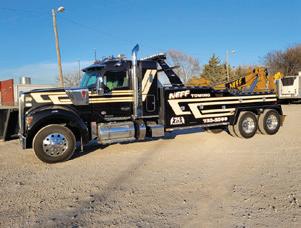








When Nebraska Parkour LLC Owner and Founder Mitchell Tillwick was launching his business featuring the unique parkour method of fitness training, he turned to the Nebraska Business Development Center (NBDC) and its professional consulting services for startups. During his company’s expansion phase, Tillwick again sought out the organization for expert guidance on such matters as facility acquisition and the lending process.
“The NBDC, above all other government services, provides quality consulting we just couldn’t find anywhere else. They have the in-depth knowledge to answer the specific questions from business startup and tax filings to scaling and beyond, all while providing entry-level explanations for someone needing early support,” Tillwick said. “Working with the NBDC was crucial in our establishment during our startup stages, survival during COVID, and growth during our lease and loan acquisition process. We would recommend the NBDC and their team as the number-one resource in the state for business owners looking for help.”
NBDC’s executive director, Dan Curran, said NBDC is not only for new businesses and owners.
“We can help businesses all along the continuum,” he said. “We help entrepreneurs with idea formation and business planning, and then we help mature businesses with government contracting, business transition, financial packaging, if they’re looking to do some sort of investment… those kinds of services. Even if it’s a program that we don’t directly represent, we help them navigate the programs that are available to them.”
NBDC, which emerged in 1977, is a University of Nebraska Omaha entity, which offers consulting and business development services to entrepreneurs and businesses at any stage. To ensure access across the state, NBDC partners with University of Nebraska–Lincoln, University of Nebraska Kearney, Wayne State College, and Chadron State College and operates out of offices in Omaha, Lincoln, Wayne, Norfolk, Kearney, North Platte, Chadron, and Scottsbluff. NBDC also provides virtual consultations.
The organization offers four core programs: the Small Business Development Center (SBDC), a resource for small business creation and expansion; the Nebraska APEX Accelerator, which helps companies take advantage of government contracting opportunities; the Innovation and Technology program, which offers confidential advisory services when developers are ready to commercialize technology; and SourceLink Nebraska, a platform connecting clients to nonprofit resources that support businesses. In addition, NBDC’s Enlighten platform provides free online courses. The organization also offers other periodic training opportunities through webinars and in-person events.
“When the Nebraska Business Development Center was established, it was one of the original eight university-based business development centers,” Curran said. “The drive was to allow the public to tap into university expertise and research to fuel business development, and I think that’s really a key to this. Having this be a university-based system allows us to work with our clients and give them access to the full resource the power of University of Nebraska Omaha and the University of Nebraska system. The university sits on a lot of data, sits on
a lot of research, and so we’re able to access all of that to be able to help our customers.”
Through NBDC’s partnerships with entities throughout the state, the expertise of many individuals from graduate students to successful business owners to organizational representatives is also an important resource, Curran said. Nearly all NBDC services are available at no cost to the client, and enterprises of all kinds are considered, Curran said.
“Everybody’s eligible for that initial meeting. I don’t know that we’ve ever really turned anybody away,” he said. “Maybe somebody has an idea that we just can’t wrap our arms around, but I don’t know what that would be. People come in and sit down with us, and no matter where they’re at, we’re going to take the meeting, and we’re going to talk with them and we’re going to try to help them achieve what they can.”
Curran said NBDC also helps potential or established businesses evaluate risk.
“It is kind of weird saying this, but sometimes saying, ‘You shouldn’t do this’ is a good answer, right? Because for most people, you’re going to get a bank involved, you’re (possibly) going to be leveraging your own assets,” he explained. “Maybe the market is saturated, and you wouldn’t be able to enter into the market in a way that you’re going to be able to achieve profit. You don’t want to be sideways with a bank, and the bank doesn’t want to be in a bad situation…I think the team here is really good about trying to keep everything realistic, so that when you are able to start your business or grow your business, you have good numbers to work with.”

“PEOPLE COME IN AND SIT DOWN WITH US, AND NO MATTER WHERE THEY’RE AT, WE’RE GOING TO TAKE THE MEETING, AND WE’RE GOING TO TALK WITH THEM AND WE’RE GOING TO TRY TO HELP THEM ACHIEVE WHAT THEY CAN.”
-DAN CURRAN

PAGE 15
“HAVING THIS BE A UNIVERSITYBASED SYSTEM ALLOWS US TO WORK WITH OUR CLIENTS AND GIVE THEM ACCESS TO THE FULL RESOURCE— THE POWER OF—UNIVERSITY OF NEBRASKA OMAHA AND THE UNIVERSITY OF NEBRASKA SYSTEM.”
-DAN CURRAN
The U.S. Small Business Administration and other federal, state, and private organizations provide financial support for NBDC. The Nebraska APEX Accelerator is partially funded through a cooperative agreement with the Department of Defense.
The effectiveness of NBDC is measurable, Curran said. In 2023, for instance, NBDC made a $623 million total impact to the Nebraska economy, serving more than 2,000 clients and creating or saving 180 jobs. NBDC clients made business investments of $23.3 million and received nearly $300 million in government contracts.
Mark Santo, president of Mark VII Enterprises Inc., which provides construction management and development representation projects including government contracting, said he’s consulted with NBDC multiple times with great results.
“Basically, NBDC has assisted us with everything to start the business and grow the business,” he said. “Best GovCon resource on the planet. We would not have been able to achieve the successes we have without them.”
To learn more, visit unomaha.edu/ nebraska-business-development-center.
B2B


Trying to locate Boone, Nebraska an unincorporated dot on the Boone County countryside is an exercise reserved for only the most committed. Most people who know where it is have always been there, generations deep area families that stayed even as time steadily turned Boone back over to farmland and pasture. Others who know it know it only in their minds, retracing steps long since receded in the rearview mirror as they sought lives elsewhere. Boone is one of those places that exists largely in name and memory, with fewer and fewer on the latter with each passing year.
What Sid Meridith knows of Boone, however, formed the bedrock of his life as the entrepreneur behind one of Omaha’s great business success stories, Security Equipment Inc. (SEi), founded in October 1969, for which he serves as chairman today. For it was there, at that tiny bend in the road, he learned the basics of hard work, customer service, and a square reputation things he would later pour into his company.
“My grandfather was an entrepreneur, and my father was an entrepreneur. They were both in the general merchandise grocery business,” he said. “I was able to observe the responsibilities a sole owner assumes when he makes the commitment of going into a business, whatever that business may be.
“There is a certain responsibility that you have once you assume your very first customer, then number two, number three, and every customer thereafter. You have a responsibility to your employees as well. You can never forget that once you make the commitment to be an entrepreneur.”
Meridith kept these and other nuggets of wisdom with him over a long and colorful life like a handful of dirt scooped from the homeplace’s back 40, a totem to remind him what he’s made of and how very big things often come from the smallest of places.
“Boone, Nebraska, only had a population of roughly 40, and sometimes we had needed to count the dogs,” he said with a chuckle. “We were the only store in Boone. The post office was located in the store; my grandmother was the postmaster, and when she retired, my mother became the postmaster.”
Meridith’s father, Earl, had an eye for opportunity, expanding the family enterprise into appliances as well as operating cream and egg trucks that eventually grew to serve a six-county radius. Growing up, Sid split his time between attending the local one-room schoolhouse and, like most children of small business owners, working in his elders’ shadows.
“I saw, somewhat from my grandfather but more so from my father, how to build a business one customer at a time. I saw how important each and every customer was,” Meridith said. “Whether it be a small customer, a large customer, they are all important. Not only finding and obtaining new customers, but how important it was to service and respect the customers you have.”
Meridith graduated from St. Edward High School and headed to Lincoln, where he earned a business administration degree from Nebraska Wesleyan University in 1962.
“They awarded me my diploma in the right hand and in the left hand, they awarded me my draft notice,” he said. “At that time, Vietnam was building up, and I was classified 1A with a very low number, so I knew that I would be drafted shortly. I called the Navy recruiter and I visited with him a little bit. He said to me, ‘You know, I understand that you have a business degree.’ And I said, ‘Yes, sir, I do.’ He said, ‘Well, you know, the Navy has an officer’s program, and we’d like to talk to you about that.’”
Meridith soon landed at Naval Officer Candidate School in Newport, Rhode Island, from which the small-town kid would see how big the world really is. He served with duty assignments on two ships as qualified officer of the deck underway, then in the Bureau of Naval Personnel assigned to the Navy Enlisted Advancement section in Washington, D.C. His last assignment brought him home, to Navy Reserve headquarters in Omaha, where after seven years of military life, he stepped into the civilian world eager for his next chapter, though he had little clue what that would be.
“I did take several job interviews and none of them were interesting to me,” he said. “I thought, ‘I’m going to try the security business.’”
The decision wasn’t entirely random; during his college years, Meridith had experience selling fire alarm systems at the request of his father, who’d been enlisted to save a struggling alarm manufacturing company in nearby Albion.

“I
SAW, SOMEWHAT FROM MY GRANDFATHER BUT MORE SO FROM MY FATHER, HOW TO BUILD A BUSINESS ONE CUSTOMER AT A TIME. I SAW HOW IMPORTANT EACH AND EVERY CUSTOMER WAS.”
-SID MERIDITH

FROM PAGE 19
“During the summer before my senior year, he asked if I would meet with school boards to discuss and contract for the installation of fire alarms,” Meridith said. “I told him, ‘Dad, I don’t know anything about fire alarms.’ His response was, ‘If you know anything, you know more than they do.’”
Meridith’s business plan was also bolstered by the fact that he’d launched SEi on the threshold of a boom period in the industry.
“The Bank Protection Act of 1968 required banks to upgrade their security with alarms, and in some cases cameras,” he said. “The Wall Street Journal predicted the security industry would be one of the 10 most rapidly growing industries in the United States. I had chosen the right industry and products; now I had to make it all happen.”
To call SEi an upstart would be a gross understatement; Meridith was a one-man show and as such, was bound to make a few rookie mistakes. The company’s first product, for example, might have had a potentially wide audience, but its technical limitations made it a major liability waiting to happen.
“The very first thing I got involved in was security cameras. Unfortunately, it was not a good product,” he said. “It looked like a good product, but it had nothing more than a Super 8 camera and a container with a bunch of flashing lights, which was really appealing as a deterrent because people would see it and think they were being photographed. The problem was, it really didn’t take very good photos. We recognized that was not going to be anything that we could launch a business on.”
Meridith’s familial common sense led him to pivot to carrying fire and intrusion alarm systems, which had recently been made mandatory through federal regulations. This fact, along with Meridith’s upbringing in rural Nebraska and the natural salesmanship he inherited from his father, quickly
made him a formidable competitor. He soon gained a foothold in areas larger companies often overlooked, generating the company considerable momentum.
“When we started, I didn’t realize how many banks didn’t have burglar alarms. They did in Omaha and Lincoln in the metro areas, but once you went out into the rural areas, such as where I was from, they didn’t have alarm systems in those banks,” he said.
“I’d found a market out there thinking if I could offer the product, the installation, and the service, which we did, we would be in there for the long haul. We built the company based on those recurring relationships; even if a building became occupied by someone else, they usually wanted to continue to do business with us.”
Meridith may have started the company as SEi’s only employee, but his plainspoken approach struck such a nerve with customers he would soon add to his client headcount. He was intentionally picky in hiring, looking to add the best talent he could get to help fulfill the company’s promise of installation and stellar service after the sale.
“In 1969, I had zero employees and zero customers,” he said. “In finding the first customer, I had to find somebody to install for me. I am not a technician, and I recognized my incompetence quite early. I surrounded myself with talent and that worked well.”
Today, SEi serves 18,000 customers in 44 states and employs more than 200 workers. Some of those employees are family; Sid and his wife Sara’s, son, Mike Meridith, serves as president and their daughter, Kristen Brumbaugh, previously served as vice president of marketing. Many more employees, including some with decades of service, are treated like professionals and feel like kin.
Matt Vellek, chief operating officer with a decade at SEi, said in addition to being a valued advisor and sounding board for ideas, Meridith is also known
for empowering employees, part of his deft touch in leading people.
“As far as what has made him effective in business, first of all, he’s curious. He’s one that, after 55 years in business, is still trying to learn and understand new things,” Vellek said. “He’s not one to say ‘I have all the ideas,’ but instead says, ‘I have input, but what does everybody else think?’
“I’ve also learned from him the value of hiring the right people, getting the right people in the right spots, and then trusting them to make the right decisions. I think that’s been one of the great traits I’ve gained from him through the years.”
“We have a very talented staff with the company,” Meridith said. “We listen a lot. We ask questions when new concepts come out. We evaluate them before we jump in, in fact, we usually let somebody else jump in first and we kind of observe them and watch and listen. We also rely on our own staff to form opinions and in many cases, we’ll do a test of a product for a period of time to assure that it meets the specifications and the performance levels as advertised.”
In addition to customers and employees, Meridith is also resolute in supporting various charities. These include American Legion, Nebraska Community Foundation, Autism Action Partnership, Boys & Girls Clubs, Ducks Unlimited, Pheasants Forever, and hundreds of other initiatives and fund drives in communities where SEi has a presence. This commitment to the community, as well as more than half a century in business, has earned Meridith and the company multiple awards and industry recognition. The latest of these, his induction into the Omaha Business Hall of Fame, is a fitting capstone to a long and distinguished career.
“THERE IS A CERTAIN RESPONSIBILITY THAT YOU HAVE ONCE YOU ASSUME YOUR VERY FIRST CUSTOMER, THEN NUMBER TWO, NUMBER THREE, AND EVERY CUSTOMER THEREAFTER. YOU HAVE A RESPONSIBILITY TO YOUR EMPLOYEES AS WELL. YOU CAN NEVER FORGET THAT ONCE YOU MAKE THE COMMITMENT TO BE AN ENTREPRENEUR.”
-SID MERIDITH
CONT. PAGE 22







“I was thrilled for Sid; I think he is very deserving of this recognition,” said longtime client and friend John Lund, founder and chairman of Lund Real Estate Co. “To start a business and still be leading that business after 50 years is quite incredible. I’m proud of the fact that he’s still there, still engaged in his company. He never forgot his roots, I think that says it all. He’s made a big mark in the city, and I think he’s as deserving as anyone for that recognition.”
Looking back, Meridith said what makes him proudest is having upheld the company’s values and ethics, even as the company has grown to a scope he could never have imagined. In good times and in bad, no matter how big or successful SEi got, it always kept its promise to customers large and small. Even today, the lessons of tiny Boone, Nebraska, still apply.
“I think what is most gratifying to me is to see the breadth of clients that we have in so many different industries that we have enabled to be more successful in their businesses,” he said. “Our job is to lower their risk of loss. We can’t eliminate risk, but we do everything we can do to reduce that risk so that their businesses will not be interrupted. It’s a 24-hour-aday, seven-days-a-week business. We never close. A customer calls us 4th of July, Christmas, New Year’s, it makes no difference, you can talk to our people. That matters to our customers.
“As far as the Hall of Fame goes, I feel very honored. I wasn’t expecting anything like this to happen, but I look at it as truly the very pinnacle of my business career. To reach this status and to be honored in this way, it’s amazing.”
For more information, visit seisecurity.com.






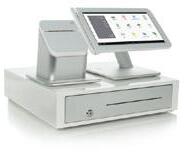









Driving down Harney Street toward the Old Market, there sits what was once an unassuming grey building near 26th Street, now covered in graffiti: the Image Arts Building. From wild West Coast styles and anime characters to more traditional New York City subway art, each piece lends the property a particular flair. It’s no surprise the people and businesses that occupy the space are just as colorful and creative as the art on its walls.
Christopher Slater is one of those people. After experiencing what he calls a “lightning bolt moment,” Slater decided to launch his own business. On May 1, less than two months after he envisioned the concept, 2626 Harney Street became home to The Syndicate Agency, Slater’s boutique marketing services and business strategy consulting company. As suggested by the company’s name, Slater collaborates with clients on marketing such as graphic design and video.
“A syndicate is a group of people, most often business owners and businesses, who work together as a team with the shared goal of helping one another succeed,” he explained. “The Syndicate Agency is a full-service marketing agency everything from logos and branding to websites to social media management, graphic design, and search engine optimization.”
The Image Arts Building was one with which he was “intimately familiar” for nearly a decade. Owned by Dana Altman, the grandson of famed film director Robert Altman, it’s home to his film company, North Sea Films, and houses dozens of Altman artifacts. 92 West, a strategically creative agency, Luke Direct Marketing, Omaha Advertising and Match Cut, another filmmaker specializing in documentaries, and the Omaha Film Festival also have their headquarters there.
Slater is particularly proud of his office. “My office was very barren previously and pretty sterile,” he said. “It had one conference table and a desk in it, and I’ve completely transformed the space. It’s a vibe.”
He also took the time to select specific items that have a personal meaning to him. From his great-grandfather’s typewriter to a raven lamp that’s a nod to his father, who graduated from Saint Benedict’s in Atchison, Kansas, where Slater was born, they all have a story.
“The inspiration behind the space was to be somewhere that I’m surrounded with creativity and love,” he said. “Nearly everything in there is connected to a friend or family member. There’re certain pieces in there like my great-grandfather’s typewriter. It was given to me by my uncle, who I donated a kidney to. He lived 12 years. He was very influential in my life. He had an advertising agency when I was a kid and I spent a lot of time there.”
Now, Slater spends most of his time at The Syndicate Agency, his “home away from home.” The ease of collaborating with so many like-minded individuals is something he doesn’t take for granted. He knows how lucky he is to be able to simply walk across the hall to get some inspiration from his fellow creatives.
“I keep joking about how we need a soup can and some kite string, like the ‘Little Rascals,’” he said with a laugh. “That would be awesome.”
For more information, visit /thesyndicateagency.co. B2B
The economy is a hot issue in any season. In January this year, the Pew Research Institute conducted a survey of Americans’ top political priorities, with 73% of the 5,140 adults surveyed stating the economy was a top priority. This was the only issue that was mentioned by people leaning both Democrat and Republican.
While thousands of people state economy as a hot topic, many don’t fully understand what that means. Ernie Goss is a professor of economics at Creighton University Heider College of Business, where he holds the Jack MacAllister chair in regional economics. He produces monthly reports for The Rural Mainstreet Index, which gleans bankers’ insights about business conditions in 10 regional states, and the Mid-American Economy reports, a monthly index report. Goss also publishes a newsletter titled “Economic Trends,” which boasts more than 11,000 subscribers.
“I think he’s pretty level-headed,” said Chris Robinson, the managing director of agriculture and commodities at TJM Institutional Services. Robinson has worked with Goss as a presenter on the public television show “Market to Market,” most recently in July 2024. “He’s not extreme. He’s not a cheerleader, but he’s not a doom-and-gloom person, either, which is kind of refreshing today.”
B2B Omaha talked to Goss about a few key topics in economics this year and gleaned his thoughts and insights.
On the topic of inflation, Goss opined that both Democrats and Republicans had put forth faulty plans, stating that neither are considering policies and are instead focused on winning elections.
“In both cases, there’s one fairly certain outcome, and that is the national debt increases fairly significantly,” Goss averred.
The Democratic platform will increase the national debt by increasing spending, while the Republican platform will increase the national debt by raising tariffs and trade restrictions.
“Very bad policy, especially in this part of the country that depends heavily on agriculture and manufacturing,” Goss reflected. “We do not need trade barriers; we do not need increased tariffs, which restrict trade.”
On the flip side, the Republicans’ idea of reducing taxes isn’t necessarily a good thing.
“They reduced corporate tax rates, and, as a result, interestingly, corporate tax collections increased,” Goss said. “Keeping those tax rates are a good thing for the economy, but reducing the tax rate is not good. They aren’t trying to win the economy, they’re trying to win the election.”
Goss said that the economy isn’t doing as well as government officials claim. “Small businesses have been hit hard, and they continue to be hit hard,” he said. “The S&P 500 is dominated by about 10 companies, 10 stocks. Those have done well as far as stock prices. Those 490 other companies have
not done well. Likewise, other, smaller businesses have not done well. It’s been a tough time. It’s a tough time for business owners. Looking ahead, many of those challenges will continue.”
He said those include overregulation, but that in June, business owners got a bit of relief, noting that the “Chevron case” was smartly decided. In June 2024, the Supreme Court ruled in this case that the courts should rely on their interpretation of ambiguous laws. This overturned the ruling in the 1984 decision that said that if Congress has not directly addressed the question at the center of a dispute, a court must uphold the agency’s interpretation of the statute. The new ruling gives the judges the power to interpret the laws.
Goss also mentioned that inflation would be a challenge to small businesses because of the continual increase of federal debt and overspending, no matter who is in office.
“As long as we accept it, we will get it,” Goss said. “We want more spending, but we want fewer taxes, that doesn’t work.”
Businesses should also be thinking about the lifetime gift state tax exemption that is getting cut in half in 2025. “There are significant tax consequences of leaving your businesses, and you either sell it or your children inherit it. There going to be significant tax issues, and valuation becomes very important. Farm ownership, particularly.”
While the gift taxes were not hugely on Goss’ radar, a different type of tax was of major concern to him.
CONT. PAGE 28

“IT’S
BEEN A TOUGH TIME. IT’S A TOUGH TIME FOR BUSINESS OWNERS. LOOKING AHEAD, MANY OF THOSE CHALLENGES WILL CONTINUE.”
-ERNIE GOSS







FROM PAGE 27
“The Democrats are talking about a wealth tax,” Goss said. “The idea of taxing wealth and taxing on unrealized gains. Taxing gain that has not been realized is a huge issue. I don’t hear that being talked about right now.”
The issue is a problem, he said, because those people with the majority of the wealth in the nation right now are in the “Baby Boom” generation, the youngest of whom turn 60 this year. The wealth tax would put a 25% tax rate on those with assets over $100M. The accountability of this approach would get convoluted, as it depends on valuations of things such as wine collections and companies.
“There’s a requirement that you have to sell it to tax the gain,” Goss said. “You’ll get to tax the gains, but you don’t get to take the deductions.”
Goss comes across sometimes as anti-government, but he’s worked in several government-run organizations, including NASA, where, in the 1990s, he was working in a burgeoning technology known as artificial intelligence (AI).
“AI is being oversold,” Goss said. “There are going to be some huge job losses coming. Just like with the internet, it was oversold in that people thought it was going to change your life overnight. In businesses, certainly in large companies.”
Goss said the big issue with AI right now is not that it is here and will be used, but how it is going to be used. He said the biggest issue with it is implementation.
“In the short-term, effects will be negative,” Goss said. “Long-term, I see positives.”
He also noted that before investing in many things, from stocks to AI, he would be cautious.
Being cautious seemed to be Goss’ overall economic theme, but Robinson said that’s how and why he’s gotten the career, and reputation, he has.
“He looks at things very objectively,” Robinson said. “He’s pretty well thought of across the board on the political spectrums…As an economist, you want someone who is steady.”
To read more, visit creighton.edu/economicoutlook/newsletter.
B2B




For over 25 years, Papio Valley Nursery has served Nebraska and Western Iowa landscapers with highquality, locally grown plant material and mulch.
Owners Alan and Rita Weiss opened the nursery on South 48th Street and Cornhusker Road with a couple of hoop houses built by Alan and his father. “Grandparents, parents, aunts, uncles, and friends all helped to get the business up and running. We like to say it was ‘two hoop houses and a dream,’” said Alan.
Papio Valley supplies plants and mulch to landscapers. They are known for their high-quality selection of annuals, perennials, shrubs, ornamental grasses, B&B trees, evergreens, and root bag trees.
They grow 75% of their inventory right in Papillion, ensuring it’s acclimated to Nebraska’s wind and extreme temperatures.
“Our competition will bring in plant material from other states. Our plants are grown here so they don’t go into shock when they are planted,” said Rita.
Plant quality is important to this local familyowned business. “We select plants that landscapers need, and homeowners want. We carry hardy varieties for the area,” said Alan.
“We have tried and true varieties that we know will survive the climate. We also pay attention to trends for new varieties, but only pick ones that will survive here,” said Rita.
Customer service is important to Papio Valley. Unlike other landscape supply stores, they don’t do any landscaping jobs or sell retail to the public. Papio Valley knows their clients are busy, so they offer delivery and online ordering focused on the landscaper’s needs. They streamline the entire process from ordering to delivery, ensuring prompt and efficient service for their customers, exemplified by their motto: “Friendly People. Exceptional Service.”
“We feel like we are a hidden gem. You can’t see our business from the road. Sometimes, new customers are surprised with all that we carry. Once they come to visit, they are impressed and stay a customer,” said Rita. We are excited to embark on the next 25 years with another location in Valley to serve landscapers in West Omaha.
PAPIO VALLEY NURSERY
11015 S 48TH ST, PAPILLION, NE 68133 402.547.5001 PAPIOVALLEY.COM.

Thirty-five patents. Fifty clients. Three hundred products. Fifty million in revenue. The red and black typography boldly claims its success on the business website, ATIPPICAL. Owner Alan Tipp wears many hats (or sunglasses in his case) as a consultant, designer, and problem-solver. Tipp’s creatively unconventional approach turns around ideas and transforms them into marketable products.
The Millard North alumni received his Bachelor of Arts and Industrial Design in Kansas and launched his career after landing a position in Baltimore, Maryland, at 180s (previously Big Bang), known for their winter weather gear, like ear warmers.
“But what do you do in the summer?” Tipp asked them.
Tipp created sunny products with the company, like Kelsyus floating pool loungers that twisted, folded, and collapsed for easy use. And why not sunglasses? The first step almost always revolves around observing people interact with the product. People put sunglasses in their pockets, and it made more sense to have them folded in the front for easier storage. Tipp would then head to the drawing board to ensure a scratch-proof lens or utilize unique hinges by practicing with orthodontic rubber bands to see what would work. In the end, Tipp became a household name in the market.
Meanwhile, Under Armour (UA) offered friendly rivalry across the harbor in the early 2000s. During
its initial opening, the brand centered on its sweatwicking performance stretch compression t-shirts like “The Shorty” for athletes to wear under their uniforms. As sales increased, UA entered other marketable sports gear to compete with top-selling companies like Nike. Eyeking Eyewear approached Tipp with an offer he couldn’t refuse. After marketing a brand of sunglasses under a private label called Armour Optics, Eyeking sparked a trademark war with UA. Rather than dispute it, the companies teamed up after a Tipp sunglass idea won over UA founder Kevin Plank. As the new design director at Eyeking, Tipp’s innovation meant professional athletes like former NFL star Deion Sanders, triathlete Chris McCormack, and NASCAR’s Chase Elliott shaded their eyes with his creations.
After 10 years, Tipp wanted to branch out on his own with ATIPPICAL and move closer to family back in Omaha, Nebraska.
“I like the intimacy of an accessory object, like a watch, a keychain, or a coveted object that you carry,” Tipp said.
“I just think there is a personal relationship between something that you carry, like an everyday object.”
This thought sparked another venture with Los Angelesbased designer Gamal Prather of MTRLobjects to execute 3-D printable products like pocket knives, wallets, and watches.
PAGE 32


FROM PAGE 31
“I LIKE THE INTIMACY OF AN ACCESSORY OBJECT, LIKE A WATCH, A KEYCHAIN, OR A COVETED OBJECT THAT YOU CARRY. I JUST THINK THERE IS A PERSONAL RELATIONSHIP BETWEEN SOMETHING THAT YOU CARRY, LIKE AN EVERYDAY OBJECT.”
-ALAN TIPP
The rest of Tipp’s time relies on his consultant-based business, helping people bring their concepts to life by branding, inventing, or developing. Papillion Landing’s identity flew under his guidance with a blue butterfly logo that marked a transformation for the community recreation center. The blueprints show the analytical side of Tipp’s creative process.
Tom Chapman, the co-founder of eye care solution company Peeq Pro, watched the consultant in action while problem-solving for a better eyelid cleaning device.
Tipp studied electronic toothbrushes and women’s vibrating cleansers to comprehend the mechanisms of what would work safely around the eye. The Waiva Eyelid Cleaning System, shaped like a clam shell, vibrates to clean the area with tea tree oil.
“He’s thoughtful, innovative, and creative,” Chapman said.
The future of eyewear could rest on the curvature of facial measurements that artificial intelligence would gather for a perfect fit while also incorporating sustainable material. Tipp hasn’t put the sunglasses back in their case, developing 3-D printed eyewear out of his home.
For more information, visit atippical.com, peeqpro. com, and mtrlobjects.com.
Advancing cardiac treatments, attracting talent, job creation, and spurring economic development are just a few of the direct and ancillary benefits experts are predicting for the University of Nebraska Medical Center (UNMC), thanks to a recent grant awarding $12 million to the institution’s Center for Heart & Vascular Research.
The award solidifies the organization’s already stellar reputation as a national leader in the field of cardiac medicine, said Dr. Dele Davies, interim UNMC chancellor.
“We have one of the top cardiac centers, between UNMC and Nebraska Medicine, in the country,” he said. “What we’ve been able to do over several years is to bring together outstanding top surgeons and bring together a strong cadre of outstanding researchers who aim to improve cardiac health, not just for Nebraska, but for the whole nation.
“In order to apply for this kind of grant, you have to have a lot of superstars, people who everybody knows when these guys say they’re going to do something, they’re going to do it, because they have a track record of doing it. It’s not just that we’re good at this, we’re going to continue it and build on the model and the facilities and the reputation that we have.”
The award, announced in January, is presented by the National Institutes of Health (NIH) and will create a Centers of Biomedical Research Excellence (COBRE) focused on finding answers for heart and vascular diseases. COBRE is a highly regarded stamp of approval and source of support from the National Institutes of Health and its National Institute of General Medical Sciences.
The sweeping grant will be used to fund several elements of research as well as mechanisms for
allowing research finding to more quickly reach the front-line medical professionals, Davies said.
“Traditionally, you have a basic scientist do the work, they publish it in a scientific journal, and there may or may not be anybody to pick it up from there to say, ‘How do we transfer this into what actually benefits the patients directly?’” he said.
“By having this type of multidisciplinary team, we can continue to have basic scientists working beside translational scientists working beside clinicians to say, ‘How do we take what we’re learning in the lab and how do we move that into actual efforts that can then be tested at the bedside and also tested as a population?’”
Principal investigator Rebekah Gundry, PhD, headed the grant application effort. She said the award is unique even among other COBRE institutions because it allows UNMC to award dollars to individual investigators as they go about their research.
“Three of our investigators are actually clinicians who do research. They are working directly with patients, and they are in a great position to be able to develop new knowledge in therapies to directly help their patients,” she said, noting one of the organization’s current researchers is a physician looking for ways to increase the number of hearts available for transplant.
“If you have a really sick heart, and there’s no available treatment for your condition, in some cases the only available course of action is a heart transplant,” she said. “Well, there’s a very limited number of hearts that are available for transplant; you may be a good candidate to receive one, but maybe there is no heart that comes available.
“What this research is doing is making improvements to how we can collect those hearts and keep them really strong so they’re good quality for transplant and they perform better once they’re transplanted. That is a measurable outcome that will come from this research, making more hearts available for transplant, which means more patients that need hearts will be able to access them.”
Gundry also said the award translates to hard dollars for the community as the money enables investigators to recruit staff to help carry out their research, a task made easier by UNMC’s stellar reputation.
“The award recognizes that the institution is incredibly invested in research,” Gundry said. “In order to even be competitive for this award, we had to be able to demonstrate that we have unprecedented support all the way from the chancellor and the president to the deans on down. All of that support is there, and UNMC is vested in creating and supporting this infrastructure. Having all those things in place is really critical to what we want to accomplish.”
Community leaders outside the UNMC family also applauded the award for its potential impact on economic development. Heath Mello, CEO and president of the Greater Omaha Chamber, said the emergence of medical research as an industry segment will pay dividends on Main Street as well as in the operating room.
“This kind of research is putting UNMC and Omaha on the map across the United States and across the globe,” he said. “The work that UNMC is doing not just in this space, but in other spaces such as cancer research through the Fred and Pamela Buffett Cancer Center and the Global Center for Health Security, where they’re focusing on infectious disease research, are very unique initiatives that UNMC has been able to elevate.

“WHAT
WE’VE BEEN ABLE TO DO OVER SEVERAL YEARS IS TO BRING TOGETHER OUTSTANDING TOP SURGEONS AND BRING TOGETHER A STRONG CADRE OF OUTSTANDING RESEARCHERS WHO AIM TO IMPROVE CARDIAC HEALTH, NOT JUST FOR NEBRASKA, BUT FOR THE WHOLE NATION.”
-DR. DELE DAVIES
Since 1917, five generations of the Walker family have served the retail, and then the commercial, laundry markets in Omaha and the surrounding areas. We’re Dry Cleaners, but many Omaha business owners have also depended on our Uniform Rental Service since 1974.
www.maxiwalker.com & www.maxiwalkeruniform.com

PAGE 35
“Having a world-renowned medical center that is focusing on this research means finding amazing researchers and faculty members to work on this and bringing them to Omaha, Nebraska. That represents tremendous potential impact for our region and our state.”
Mello said hints of what’s to come are already on display in Midtown, where development is ongoing to help provide the physical spaces needed for the medical research industry to capitalize on its current and future momentum.
“I think this NIH grant only cements the opportunity that exists, with the new Catalyst Building and, hopefully, the soon-to-be Innovation District that UNMC is currently building in and around their campus,” he said. “That focus on the startup and commercialization of research clearly has potential for partnerships with private sector companies in the Omaha area.
“The impact of the grant, possibly leading to additional research grants, has tremendous economic potential for UNMC, for midtown Omaha, and the whole regional economy in terms of what UNMC is trying to do to grow the bio economy in the greater Omaha area.”
The award continues the impressive string of accomplishments the Center for Heart and Vascular Research has built since its founding in 2019. In that short period, the entity has quickly reached one impressive milestone after another, from partnering on the creation of a new heart stent to building a one-of-a-kind repository for collecting heart and vascular tissue and blood for research, to uncovering new molecules in the heart that can effectively serve as mapping agents, helping physicians deliver therapies to the right place.
“I think the message is really about our people and the ability and opportunity we have had to recruit outstanding individuals here. They are the ones that make awards like this happen,” Davies said. “At the end of the day, it’s really about having a reputation that allows us to bring the very best people here to work together. This is great for Nebraska, ultimately, and it’s great for our nation.”
For more information, visit unmc.edu/chvr.



ACX Cinemas, which include Aksarben Cinema, ACX Cinema in Elkhorn, and ACX Pioneer 3 Theater in Nebraska City (along with cinemas in Illinois, Iowa, Ohio, and Wisconsin), all fall under the corporate umbrella of Main Street Theatres, Inc.
The business earned its name when owners Bill and Colleen Barstow realized that many of the theaters they purchased were on “Main Street” in their respective cities. It’s a name that points toward the hometown beginnings of the company, which now includes 54 screens across various states and four restaurants. It all started in 1988 in Plattsmouth, when Bill Barstow was readying to complete his enlistment in the Air Force.
Stationed at Offutt Air Force Base, Barstow heard that a single-screen theater in Plattsmouth was for sale. Mike Barstow, Bill’s son and executive vice president of Main Street Theatres, Inc., explained, “The theater went on sale, and they kind of borrowed the down payment across three different credit cards, bought the theater, had the guy self-finance it, and that was kind of how they figured out that business. Then they grew into Nebraska City and a couple other small towns across Nebraska and Iowa and bought and sold theaters over the years.”
The company has grown exponentially over the years, even managing to survive and thrive during the COVID-19 pandemic. They opened a 14-plex in Sioux City in 2004, Aksarben Cinema in 2010, and the ACX-12 in Elkhorn opened in 2020 featuring the Backlot Pizza + Kitchen, serving Detroit-style pizza.
In addition to the cinemas, Main Street Theatres also owns four full-service restaurants with another restaurant opening soon, along with some cocktail bars. Inkwell, in partnership with Tyler Schaeffer, has two locations now: one in Omaha, and another in Chicago.
Once they realized that their cinemas brought in so many people, who then turn around and go eat nearby after the movie, the Barstows capitalized on the massive potential available to them.
Making the paradigm shift from theater to restaurant owners wasn’t difficult for the Barstows. “It started a little bit before COVID,” Mike Barstow explained. “We had a restaurant we partnered in at Aksarben Village that opened in 2014 or 2015. We opened Backlot Taphouse in 2019.” They already had the project in the works, but with the pandemic, they decided to “double down” on the restaurant space to diversify their business.
They continue to make improvements to their existing facilities and to grow thoughtfully. They’re currently working on adding some golf swing simulators to a facility and are in the process of folding Site One Brewing in Downtown Omaha into their company.
Mike Barstow explained that the future of the company doesn’t necessarily look focused on cinemas or restaurants, but rather, on both. And they’re not apprehensive about trying new things as a family business.
“We like to do the hard stuff and figure it out and get into it,” he said. “I think we’re very hands-on and a ‘boots to the ground’ kind of family.” It’s an appropriate analogy for a family company that grew from a military member’s thoughtful exit plan from military service.
To learn more, visit acxcinemas.com.
B2B
N orm Marfice knows the answers to a lot of visitors’ burning questions.
As a volunteer for the Airport Ambassador Program at Eppley Airfield (OMA), Norm can tell you how to find an Uber, where baggage claim is, and what events are happening in the city.
Volunteers like Norm are critical to making visitors feel welcome and helping airport passengers reach their destination easily. As OMA undergoes a $950-million terminal expansion, Volunteer Ambassadors are also an asset to airport staff. While the staff focuses on keeping travelers safe during construction, they know there is a team interacting with the travelers making sure they’re informed. Poised to nearly double in size, Omaha’s airport serves over 5 million passengers annually and offers nonstop service to 31 destinations. Planned improvements include a terminal expansion, more traveler amenities, two international gates, and enhanced curbside and entrance facilities.
As part of its efforts to maintain premier customer service amidst these developments, the Omaha Airport Authority, with support from Visit Omaha, is expanding the Airport Ambassador
Program and actively seeking volunteers. Carolyn Kruger, who leads OMA’s marketing and recruitment efforts for the Airport Ambassador Program, says the ideal volunteer loves Omaha and wants to share it with people who may be experiencing the city for the first time. It’s an exciting opportunity for people who love to travel, love helping people, love aviation, or want to see the airport changes firsthand.
Norm, an ambassador for eight years, encourages volunteers to apply because the work is impactful. Helping airport visitors helps the entire Omaha community, he says, because you’re providing a positive first impression of the city.
Volunteers also receive benefits, including free airport parking (while volunteering and during personal vacations), biannual appreciation events, airport concessions discounts, and discounts to area attractions all of this in addition to that feel-good boost you get from helping folks out.
To learn more about the Airport Ambassador Program and sign up, visit flyoma.com/ambassadors.
A s President and CEO of the Greater Omaha Chamber, I have the privilege of working with many of the vibrant small and medium-sized businesses that form the backbone of our local economy. These enterprises are not just vital contributors to our economic health, but also key stakeholders in shaping our community’s future. One of the most crucial ways small businesses can ensure their voices are heard and their interests protected is by actively engaging in the political process.
It is imperative for all business owners to maintain regular contact with their elected officials. Whether it’s a new regulation, tax policy, or economic development initiative, these decisions directly impact your operations. By reaching out to your local, state, and federal representatives, you can provide valuable insights and real-world examples of how proposed changes might affect your business. This dialogue is essential. It ensures that policymakers understand the implications of their decisions on the ground and can lead to more informed and balanced policies.
Your contributions enable us to advocate more effectively for a pro-business environment and foster economic growth and stability in our region.
In addition to financial support, volunteering with our various chamber councils and committees is another significant way to make an impact. Your participation ensures that the diverse perspectives of our business community are represented in these discussions. By sharing your experiences and expertise, you can help craft policies and initiatives that promote a thriving business ecosystem.
Active engagement in the political process is not just a duty; it is a strategic investment in the future of your business. It allows you to shape the environment in which you operate and ensure that your interests have a seat at the table. The Greater Omaha Chamber is committed to supporting you in this endeavor. Together, we can build a more prosperous and dynamic community.

Moreover, business owners must recognize the power they wield collectively. By banding together through organizations like the Greater Omaha Chamber, you can amplify your voice. One effective way to do this is by becoming an active investor in the Greater Omaha Chamber Political Action Committee (PAC). The Greater Omaha Chamber PAC is the only entity in the region that works tirelessly to support local and state candidates that align with the interests of our regional business community.
I urge you to take the initiative contact your elected officials, invest in the Greater Omaha Chamber PAC, and volunteer with one of our numerous councils or committees. Your involvement is crucial for creating a businessfriendly environment that supports growth, innovation, and success for all.
For more information, visit omahachamber.org.










